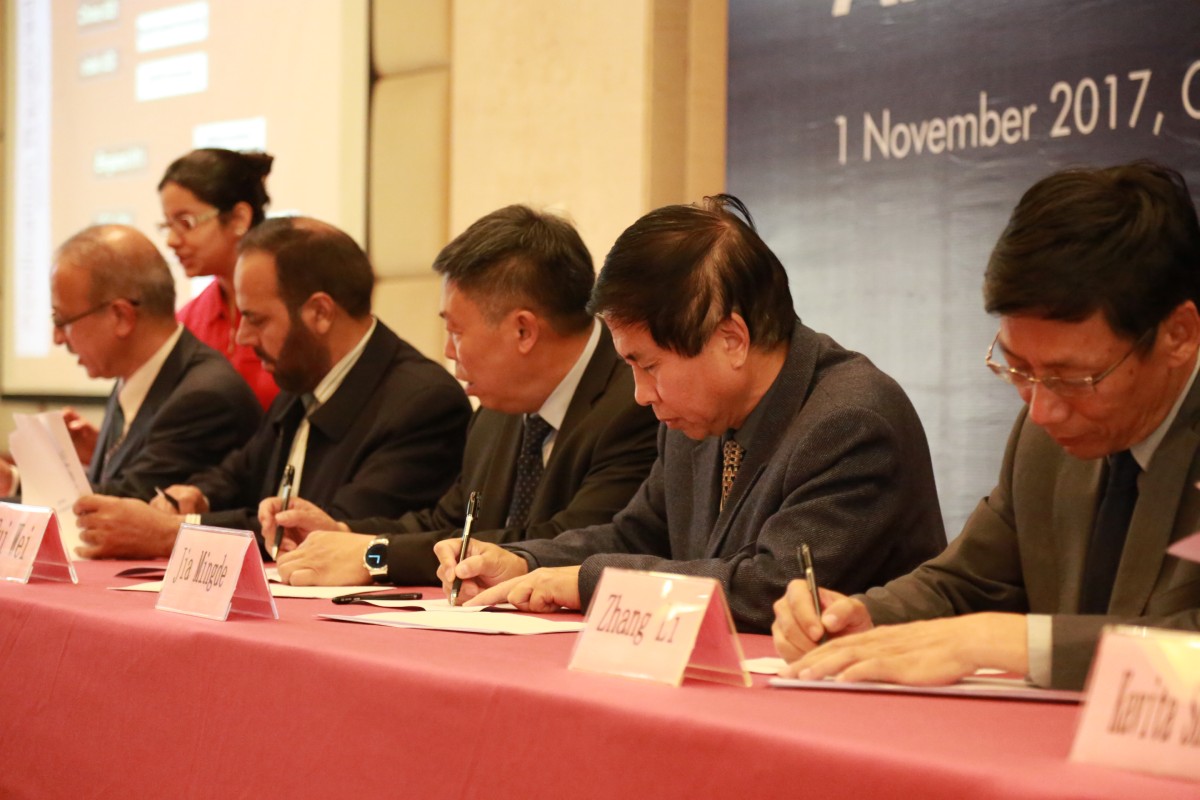About us
The first HUC Charter was drafted by a Steering Committee, which was formed at the Annual Meeting hosted by Lanzhou University in 2014, in consultation with members’ senior representatives participating in the meeting. The draft was discussed and finalized at the HUC Summit 2015 in Kathmandu. The HUC Charter 2015 was signed, for the first time in Kathmandu, by Vice Chancellors, Rectors, Vice/Presidents, and Heads of Institutions of 24 universities and research institutions participating in the Summit. From then onward, instead of signing a Memorandum of Understanding with ICIMOD, new members signed the HUC Charter to join the Consortium.

During the first phase of HUC’s transition to autonomy (Jan-Jun 2025), a Governance Task Team, comprised of nine members who were scientists and scholars from the Hindu Kush Himalayan region and outside the HKH, under the co-chairmanship of two Steering Committee Members, Professor Dr. LIU Peng (Yunnan University, China) and Dasho Nidup Dorji (former Vice Chancellor, Royal University of Bhutan), drafted a revision of the Charter. The Governance Task Team took into thorough consideration the state of the art of the sciences and humanities in the context of planetary crises and the roles and responsibilities of higher education institutions in the region. The Task Team took inspiration from like-minded academic networks and consortia such as the University of Arctic (UArctic) and the Asia Pacific Association of Agriculture Research Institutions (APAARI) in building strong institutions in climate governance for impactful climate action.
On 17 March 2025, a month prior to the intended date of the General Assembly Meeting (16-18 April, 2025), the Charter draft revision was circulated to Heads of Institutions and Focal Persons of institutional members with valid membership to solicit their comments and input. The Secretariat incorporated members’ comments and input in the final version that was put forward for endorsement by the General Assembly through Emergency Voting during the last two weeks of April 2025. A detailed comparison of differences between 2015 and 2025 Charter was provided for voters to make an informed decision. With 36/36 affirmative votes, the HUC Charter 2025 was endorsed by GA and came into force on 1 May 2025.
The HUC Charter 2025 articulates the Consortium’s vision for a peaceful, resilient, inclusive, just and regenerative Hindu Kush Himalaya. It highlights the roles and responsibilities of higher education institutions within and outside of the HKH region in promoting in-country, regional, and international cooperation in research, education, capacity development, policy advocacy, and public outreach. For the first time in almost two decades of HUC’s existence, a set of nine core values – Mountain focused, Academic excellence, Inclusive, Respectful, Collaborative, Ethical, Open, Influential, and Self-reliant – are put forward. The Charter also describes its unique approach in building a membership-based, consensual alliance with a lean administrative structure and distributive leadership, abiding by principles of integrity and transparency and moving toward e-governance and demonstrating the ethics of care in all aspects of its operations.
The endorsement of the progressive HUC Charter 2025 by the General Assembly was a key milestone in the Consortium’s efforts in building its governance fit-for-purpose and future readiness.